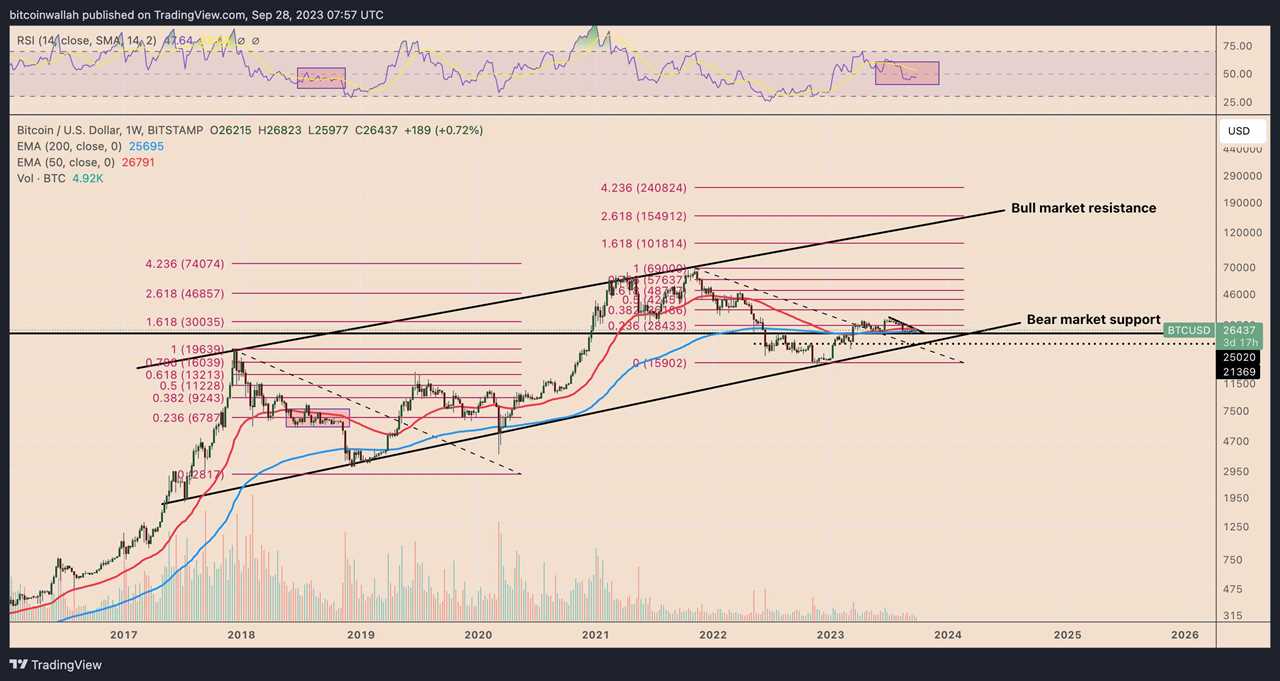
Bitcoin's Bullish Reversal
Bitcoin (BTC) has seen a bullish reversal this year, with a 70% gain since bottoming out at around $16,800 in November 2022. This rise has defied rate hike fears and been fueled by growing ETF approval optimism.
Bitcoin's Struggle to Sustain
However, Bitcoin bulls have struggled to keep the price above $30,000 in recent months. With the next "bullish" halving over 200 days away, many traders are wondering if Bitcoin's price is going to crash again in the coming months.
Technical Analysis Points to a Crash
From a technical standpoint, Bitcoin's price has stabilized around the 0.236 Fib line of its Fibonacci retracement graph. This is reminiscent of the price action seen during the 2018 BTC price correction. If history repeats itself, Bitcoin could crash to $21,500, down 17.75% from current levels.
The Impact of a Strong Dollar
The U.S. dollar strength index (DXY) has reached its highest level since November 2022. The index has shown a negative correlation with Bitcoin throughout 2023. If the dollar continues to strengthen, Bitcoin's upside potential may be limited.

On-Chain Metrics Paint a Mixed Picture
Bitcoin's on-chain metrics offer a mixed outlook. The Coin Day Destroyed (CDD) metric, which measures long-term investors' actions, spiked on Sep. 19, suggesting possible profit-taking or repositioning. However, Bitcoin reserves on crypto exchanges continue to decline, indicating increased hodling behavior among investors.
What Bitcoin Analysts are Saying
Bitcoin analysts are divided over the future price of BTC. Some argue that it can hit $30,000 by October, citing thin Ask liquidity. Others believe a price correction toward $18,000 is possible based on a pre-halving fractal.
This article does not contain investment advice or recommendations. Every investment and trading move involves risk, and readers should conduct their own research when making a decision.
Did you miss our previous article...
https://trendinginthenews.com/crypto-currency/ibm-quantum-and-microsoft-form-coalition-to-tackle-postquantum-cryptography






